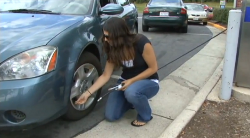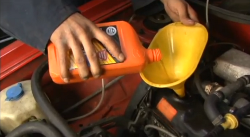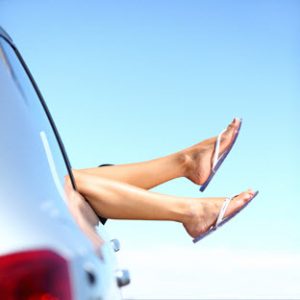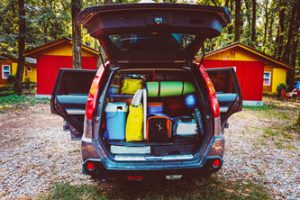Summer Driving Safety Tips and Tricks
Summer Driving Safety Tips and Tricks
Statistics show summer is actually a riskier time to be on the road. But you might be tempted to go for a drive, either for a day trip or to go on holiday in summer. So follow our top summer driving safety tips to stay safe on the road during summer

Summer Driving Safety Tips and Tricks
Check Tyre

Summer Driving Tips
Checking your tires is crucial in the summer. Remember that tire pressure will increase as the outside air temperature rises. Under some conditions that increase in pressure is enough to blow the tire!. Don’t count on your electronic Tire Pressure Monitoring System to alert you to an overinflated tire, either the warning light will only get illuminated when a tire’s air pressure is too low, not too high. Check your tires on a regular basis and always make sure you check them when temperatures spike.
Also check tread depths (1.6mm for the central three-quarters of the tread and the entire outer circumference) with a 20p piece – if the outer band of the coin isn’t visible, the tyre is safe.
Oil Change

Summer Driving Safety Tips – Oil Change
Be sure to get an oil change at the end of spring. Engines need a lot of lubricant when it gets hot and old oil becomes sticky and doesn’t help an engine as well as fresh, clean oil. Most car manufacturers recommend changing the oil each time the car passes 5,000 miles but if you are going to be doing a lot of driving this summer, change it before then.
Cooling System
Your car needs to stay cool in the heat of summer, so ensure that the cooling system is in full working order. If the coolant leaks or the fan is faulty, the car could overheat. There are a few signs to look for, if you think your cooling fan might not be functioning. These include overheating while stuck in traffic, overheating with the AC on or if your AC won’t come on at all. If any of these problems are happening to you, the cooling fan could be a likely culprit!, so ensuring it’s in good working order is crucial. And at the same time, make sure your air conditioning system is regularly serviced.
Emergency Roadside Kit
Prepare an emergency kit and keep it in the trunk. The kit should include:
- First aid supplies
- Jumper cables
- Flashlight with fresh batteries
- Spare batteries for flashlight
- Roadside flares
- Basic tools
- Duct tape
- Gloves
- Bottled water
- Granola bars
Take Driving Breaks

Summer Driving Tips – Driving Breaks
Heat exhaustion is a critical cause of drowsiness, which poses a significant risk to the safety of everyone on the roads. Remind drivers of the importance of staying alert and if necessary it is best to pull over and take a break. It is better to lose a few hours than lose entire days and risk injury because of an accident. To combat increased fatigue, drivers should also take frequent breaks and drink lots of fluids to avoid heat exhaustion.
Staring at the same site lines for hours is very tiring especially during summer. So taking a break helps you to freshen up. If your trip is more than 2 hours, plan a stop part way through your trip. While you’re taking your break, check your vehicle to make sure that everything is sound.
Caution Around Construction Projects
Warm weather increases road construction work. Safely navigate through construction zones, obey all signs and watch for pedestrians and work vehicles.
Match Load Rate Of Vehicle

Summer Driving Tips – Load Check
Match the load rate of your vehicle with the estimated weight of your family and the luggage you’ll be packing for the trip. Excess weight makes the engine work harder and consume more gasoline. Your owner’s manual has information about the maximum weight of all cargo and passengers your vehicle can safely carry.
Also get the junk out of the trunk! Remove unnecessary items in your vehicle’s trunk – an extra 100 pounds could reduce your mileage by up to 2%.
Keep A Safe Distance
Summer traffic is unpredictable. Traffic flow can suddenly stop and if you’re too close to the car in front of you, you could end up in a rear-end accident. When hauling a heavy load of any kind it is important to brake sooner than normal, but this is especially important in the summer as fleets’ normal traffic patterns are interrupted by construction zones, tourist season and families and children who are out of school.
Happy and Safe driving!!!



